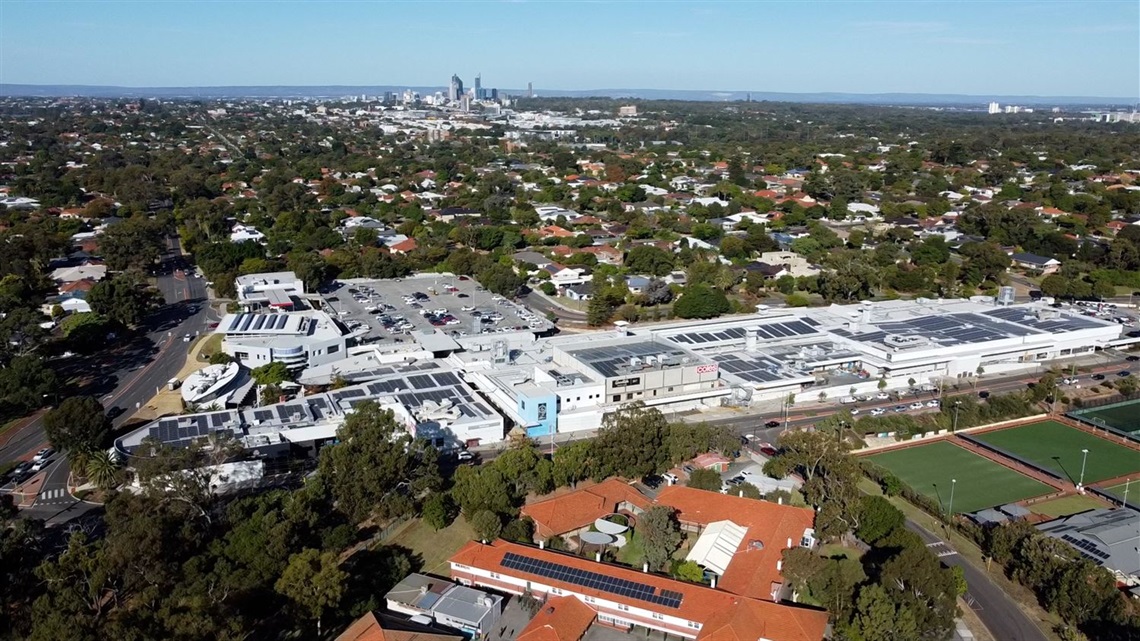Town of Cambridge Condemns WAPC Decision on Floreat Activity Centre
Published on 05 November 2025

The Town of Cambridge has expressed its strong objection to the Western Australian Planning Commission’s (WAPC) decision to approve APIL Group’s Precinct Structure Plan (PSP) for the Floreat Activity Centre, while rejecting the Town’s own community-led PSP.
Mayor Gary Mack said the decision represents a serious breach of trust between the State Government, the Town, and its community.
Town of Cambridge Mayor, Gary Mack, spoke of Council, and our community’s dissatisfaction with the decision, “I know I speak for our Council and our community when I express my bitter and deep disappointment with the Statutory Planning Committee’s decision today” he stated.
“It disregards the planning contract we have with our community and the State Government—one built on consultation, strategic alignment, and shared vision,” Mayor Mack said.
“The Town’s PSP was developed through a comprehensive, transparent process involving a Community Working Group, extensive public consultation, and alignment with our endorsed Local Planning Strategy. It met the State’s dwelling targets and preserved Floreat’s unique character.”
In contrast, the APIL PSP includes excessive building heights and departs significantly from the Local Planning Strategy—yet it was approved. The Town’s PSP, which the Department acknowledged could also be approved, was refused without any consideration of potential modifications.
“We asked the Statutory Planning Committee to defer its decision so the Department could recommend modifications to the Town’s PSP—just as it did for APIL’s. That request was refused,” Mayor Mack said. “This is not just a technical oversight. It’s a failure of procedural fairness for the Town’s plan.”
“This decision undermines the integrity of our local planning frameworks and the trust our community places in the planning system. Our Local Planning Strategy is not just a technical document - it is, in effect, a contract between the Town, our community, and the State Government on the agreed future of our community. That contract has been broken by today’s decision.”
“The future of Floreat is so important to us all, and this is an issue that has been passionately debated and defended by our community for more than a year. The Statutory Planning Committee had the clear advantage of understanding our community’s aspirations for the area through our Town led PSP, and the advice from the Department was that both plans were able to be approved.”
“Our plan was developed after an extensive process, in partnership with our community, that included our own Community Working Group, extensive community consultation and alignment with our current, endorsed Local Planning Strategy. “
“The Town’s PSP provided a similar residential yield to the APIL plan, ensuring the State Government’s dwelling targets were achievable, but yet protected the area’s unique charter without APIL’s excessive building heights and significant departure from the community’s vision for the area.” Mayor Mack said today, following the meeting.
The Town of Cambridge has consistently supported increased density and urban renewal. “We are not opposed to growth,” the Mayor added. “But growth must be guided by good planning, not developer-led expediency and commercial returns.”
“The Department’s reasoning appears to be driven more by commercial interests than good planning. That’s not acceptable. The community deserves to have its voice respected—not overridden,” Mayor Mack said.
“It is telling that the main reasons provided by the Department for refusal of the Town’s plan focus on procedural and practical issues – not planning matters.”
The Town advocated on behalf of our community as strongly as possible. Mayor Mack made a verbal deputation on behalf of Council, calling for the Statutory Planning Committee to defer its decision until the Department had time to recommend modifications to both plans. GHD, the Town’s consultants, also made a written submission and our community was represented through deputations by our Community Working Group and other concerned community members. The Town argues that local planning frameworks are not just technical documents - they are community contracts, reflecting years of collaboration between residents, Council, and the State. The approval of a developer-led plan over a community-led one sends a troubling message about the priorities of the planning system.
“We call on the State Government to restore balance to the planning system by respecting endorsed local planning frameworks and ensuring that WAPC decisions are transparent, accountable, and based on objective, unbiased officer reports. Today, that did not happen.”